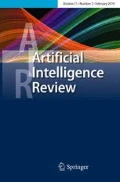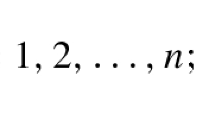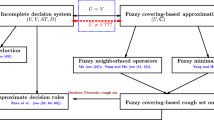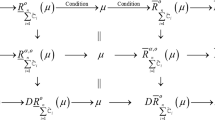Abstract
Covering based intuitionistic fuzzy (IF) rough set is a generalization of granular computing and covering based rough sets. By combining covering based rough sets, IF sets and fuzzy rough sets, we introduce three classes of coverings based IF rough set models via IF\(\beta \)-neighborhoods and IF complementary \(\beta \)-neighborhood (IFC\(\beta \)-neighborhood). The corresponding axiomatic systems are investigated, respectively. In particular, the rough and precision degrees of covering based IF rough set models are discussed. The relationships among these types of coverings based IF rough set models and covering based IF rough set models proposed by Huang et al. (Knowl Based Syst 107:155–178, 2016). Based on the theoretical analysis for coverings based IF rough set models, we put forward intuitionistic fuzzy TOPSIS (IF-TOPSIS) methodology to multi-attribute decision-making (MADM) problem with the evaluation of IF information problem. An effective example is to illustrate the proposed methodology. Finally, we deal with MADM problem with the evaluation of fuzzy information based on CFRS models. By comparative analysis, we find that it is more effective to deal with MADM problem with the evaluation of IF information based on CIFRS models than the one with the evaluation of fuzzy information based on CFRS models.


Similar content being viewed by others
References
Alcantud JCR (2002) Revealed indifference and models of choice behavior. J Math Psychol 46:418–430
Alcantud JCR, Torra V (2018) Decomposition theorems and extension principles for hesitant fuzzy sets. Inf Fusion 41:48–56
Atanassov KT (1986) Intuitionistic fuzzy sets. Fuzzy Set Syst 20:87–96
Atanassov KT, Pasi G, Yager RR (2015) Intuitionistic fuzzy interpretations of multi-criteria multi-person and multi-measurement tool decision-making. Int J Syst Sci 36:859–868
Bonikowski Z, Bryniarski E, Wybraniec-Skardowska U (1998) Extensions and intentions in rough set theory. Inf Sci 107:149–167
Chen CT (2000) Extensions of the TOPSIS for group decision-making under fuzzy environment. Fuzzy Set Syst 114:1–9
Chen DG, Li W, Zhang X, Kwong S (2014) Evidence-theory-based numerical algorithms of attribute reduction with neighborhood-covering rough sets. Int J Approx Reason 55:908–923
Chen DG, Zhang X, Li W (2015) On measurements of covering rough sets based on granules and evidence theory. Inf Sci 317:329–348
Chen TY (2011) A comparative analysis of score functions for multiple criteria decision-making in intuitionistic fuzzy settings. Inf Sci 181:3652–3676
Cornelis C, Cock MD, Kerre EE (2003) Intuitionistic fuzzy rough sets: at the crossroads of imperfect knowledge. Expert Syst 20(5):260–270
Dai JH, Hu H, Wu WZ, Qian YH, Huang DB (2018) Maximal discernibility pairs based approach to attribute reduction in fuzzy rough sets. IEEE Trans Fuzzy Syst 26(4):2174–2187
Dai JH, Wei BJ, Zhang XH, Zhang QH (2017) Uncertainty measurement for incomplete interval-valued information systems based on \(\alpha \)-weak similarity. Knowl Based Syst 136:159–171
D’eer L, Cornelis C, Godo L (2017) Fuzzy neighborhood operators based on fuzzy coverings. Fuzzy Sets Syst 312:17–35
D’eer L, Restrepro M, Cornelis C, Gomez J (2016) Neighborhood operators for coverings based rough sets. Inf Sci 336:21–44
Deng T, Chen Y, Xu W, Dai Q (2007) A novel approach to fuzzy rough sets based on a fuzzy covering. Inf Sci 177:2308–2326
Dubois D, Prade H (1990) Rough fuzzy sets and fuzzy rough sets. Int J Gen Syst 17:191–209
Hu BQ (2015) Generalized interval-valued fuzzy variable precision rough sets determined by fuzzy logical operators. Int J Gen Syst 44:849–875
Hu J, Pedrycz W, Wang G (2016) A roughness measure of fuzzy sets from the perspective of distance. Int J Gen Syst 45:352–367
Huang B, Guo C, Zhang Y, Li H, Zhou X (2014) Intuitionistic fuzzy multigranulation rough sets. Inf Sci 277:299–320
Huang B, Guo C, Zhang Y, Li H, Zhou X (2016) An intuitionistic fuzzy graded covering rough sets. Knowl Based Syst 107:155–178
Hwang CL, Yoon KS (1981) Multiple attibute decision methods and applications. Springer, Berlin
Li LQ, Jin Q, Hu K, Zhao FF (2017) The axiomatic characterizations on L-fuzzy covering-based approximation operators. Int J Gen Syst 46:332–353
Li TJ, Leung Y, Zhang WX (2008) Generalized fuzzy rough approximation operators based on fuzzy covering. Int J Approx Reason 48:836–856
Liu GL, Sai Y (2009) A comparison of two types of rough sets induced by coverings. Int J Approx Reason 50:521–528
Luce RD (1956) Semiorders and a theory of utility discrimination. Econometrica 24:178–191
Ma L (2012) On some types of neighborhood-related covering rough sets. Int J Approx Reason 53:901–911
Ma L (2015) Some twin approximation operators on covering approximation spaces. Int J Approx Reason 56:59–70
Ma L (2016) Two fuzzy coverings rough set models and their generalizations over fuzzy lattices. Fuzzy Sets Syst 294:1–17
Mardani A, Jusoh A, Zavadskas EK (2015) Fuzzy multiple criteria decision-making techniques and applications—two decades review from 1994 to 2014. Expert Syst Appl 42(8):4126–4148
Pawlak Z (1982) Rough sets. Int J Comput Inf Sci 11(5):341–356
Pomykala JA (1987) Approximation operations in approximation spaces. Bull Pol Acad Sci Math 35:653–662
She Y, He X (2014) Rough approximation operators on \(R_0\)-algebras (nilpotent minimum algebras) with an application in formal logic \(L^*\). Inf Sci 277:71–89
She Y, He X, Shi H, Qian Y (2017) A multiple-valued logic approach for multigranulation rough set model. Int J Approx Reason 82:270–284
She Y, Li J, Yang H (2015) A local approach to rule induction in multi-scale decision tables. Knowl Based Syst 89:398–410
Sun BZ, Ma W (2011) Fuzzy rough set model on two different universes and its application. Appl Math Model 35(4):1798–1809
Sun BZ, Ma W (2014) Soft fuzzy rough sets and its application in decision-making. Artif Intell Rev 41(1):67–80
Sun BZ, Ma W (2016) An approach to evaluation of emergency plans for unconventional emergency events based on soft fuzzy rough set. Kybernetes 45(3):1–26
Sun BZ, Ma W, Liu Q (2013) An approach to decision-making based on intuitionistic fuzzy rough sets over two universes. J Oper Res Soc 64:1079–1089
Sun BZ, Ma W, Xiao X (2017) Three-way group decision-making based on multigranulation fuzzy decision-theoretic rough set over two universes. Int J Approx Reason 81:87–102
Sun BZ, Ma W, Zhao H (2013) A fuzzy rough set approach to emergrncy matrial demand prediction over two universe. Appl Math Model 37:7062–7070
Szmidt E, Kacprzyk J (2000) Distances between intuitionistic fuzzy sets. Fuzzy Sets Syst 114:505–518
Tsang ECC, Chen D, Yeung DS (2008) Approximations and reducts with covering generalized rough sets. Comput Appl Math 56:279–289
Wang W, Xin X (2005) Distance between intuitionistic fuzzy sets. Pattern Recognit Lett 26:2063–2069
Xu WH, Zhang WX (2007) Measuring roughness of generalized rough sets induced a covering. Fuzzy Sets Syst 158:2443–2455
Xu ZS (2007) Intuitionistic fuzzy aggregation operators. IEEE Trans Fuzzy Syst 15:1179–1187
Xu ZS (2010) A deviation-based approach to intuitionistic fuzzy multiple attribute group decision-making. Group Decis Negot 19:57–76
Xu ZS (2012) Intuitionistic fuzzy multiattribute decision-making: an interactive method. IEEE Trans Fuzzy Syst 20:514–525
Xu ZS, Yager RR (2006) Some geometric aggregation operators based on intuitionistic fuzzy sets. Int J Gen Syst 35:417–433
Xu ZS, Yager RR (2008) Dynamic intuitionistic fuzzy multi-atribute decision-making. Int J Approx Reason 48:246–252
Xu ZS, Zhao N (2016) Information fusion for intuitionistic fuzzy decision-making: an overview. Inf Fusion 28:10–23
Yang B, Hu BQ (2016) A fuzzy covering-based rough set model and its generalization over fuzzy lattice. Inf Sci 367–368:463–486
Yang B, Hu BQ (2017) On some types of fuzzy covering-based on rough sets. Fuzzy Sets Syst 312:36–65
Yao YY (1998) Relational interpretations of neighborhood operators and rough set approximation operators. Inf Sci 111:239–259
Yao YY (2010) Three-way decisions with probabilistic rough sets. Inf Sci 180:341–353
Yao YY (2016) Three-way decisions and cognitive computing. Congit Comput 8(4):543–554
Yao YY, Yao B (2012) Covering based rough set approximations. Inf Sci 200:91–107
Yue ZL (2014) TOPSIS-based group decision-making methodology in intuitionistic fuzzy setting. Inf Sci 277:141–153
Żakowski W (1983) Approximations in the space \((U, \Pi )\). Demonstr Math XVI:761–769
Zhan J, Alcantud JCR (2018) A novel type of soft rough covering and its application to multicriteria group decision-making. Artif Intell Rev. https://doi.org/10.1007/s10462-018-9617-3
Zhang XH, Miao D, Liu C, Le M (2016) Constructive methods of rough approximation operators and multigranulation rough sets. Knowl Based Syst 91:114–125
Zhang XY, Miao DQ (2017) Three-way attribute reducts. Int J Approx Reason 88:401–434
Zhang ZM (2012) Generalized intuitionistic fuzzy rough sets based on intuitionistic fuzzy coverings. Inf Sci 198:186–206
Zhang ZM (2013) Generalized Atanassov’s intuitionistic fuzzy power geometric operators and their application to multiple attribute group decision-making. Inf Fusion 14:460–486
Zhou L, Wu WZ (2008) On generalized intuitionistic fuzzy rough approximation operators. Inf Sci 178:2448–2465
Zhu P (2011) Covering rough sets based on neighborhoods: an approach without using neighborhoods. Int J Approx Reason 52:461–472
Zhu W (2007) Topological approaches to covering rough sets. Inf Sci 177:1499–1508
Zhu W (2009) Relationship between generalized rough sets based on binary relation and covering. Inf Sci 179(3):210–225
Zhu W, Wang F (2007) On three types of covering rough sets. IEEE Trans Knowl Data Eng 19:1131–1144
Acknowledgements
The authors are extremely grateful to the editor and four anonymous referees for their valuable comments and helpful suggestions which helped to improve the presentation of this paper. The first author was supported by the NNSFC (11461025, 11561023). The second author was supported by the NNSFC (71571090), the National Science Foundation of Shaanxi Province of China (2017JM7022), the Key Strategic Project of Fundamental Research Funds for the Central Universities (JBZ170601).
Author information
Authors and Affiliations
Corresponding author
Additional information
Publisher's Note
Springer Nature remains neutral with regard to jurisdictional claims in published maps and institutional affiliations.
Rights and permissions
About this article
Cite this article
Zhan, J., Sun, B. Covering-based intuitionistic fuzzy rough sets and applications in multi-attribute decision-making. Artif Intell Rev 53, 671–701 (2020). https://doi.org/10.1007/s10462-018-9674-7
Published:
Issue Date:
DOI: https://doi.org/10.1007/s10462-018-9674-7




